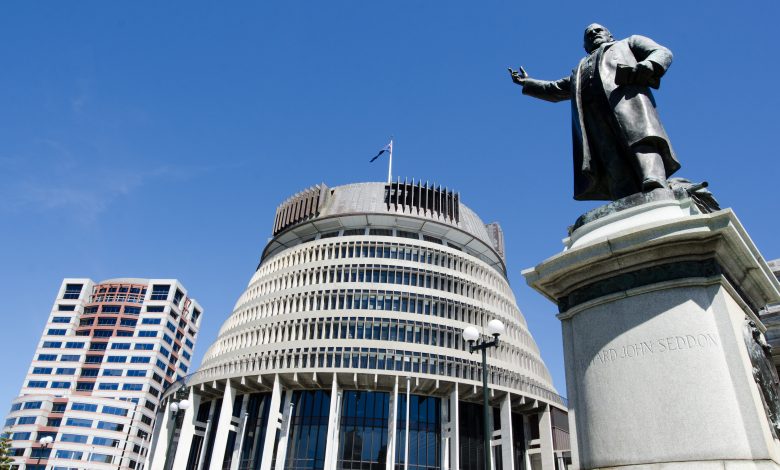Education under Erica Stanford
The new Education Minister has spoken to RNZ about her plans for the sector, including changes to ITE, property and curriculum.

New education minister Erica Stanford has shaken up the sector following the instatement of the new government; she spoke to RNZ on some of the planned changes, including a “big work programme” for ITE and standardising assessment tools and curriculum.
Read the Term 1 edition of School News HERE
The beginning of the 2024 school year has already seen some changes in the sector such as an hour of reading, writing and maths for Years 0 to 8. Stanford said that most schools were already doing this, and the purpose of the policy is to ensure consistency. She noted that schools had the freedom to incorporate these subjects across the school day as part of lessons in other subjects to meet the requirement.
“We’ve provided schools with templates and guides and we will give them ongoing support and guidance,” said the minister.
“We’re not expecting a five-year-old who’s brand new to school to sit down and do an hour of maths. That of course is not our intention,” said Stanford.

She did, however, state that PISA was “a wake-up call” and said that the Ministry expected a “laser focus” on reading, writing and maths and it was expected these subjects would be taught even on weeks where there were other commitments like sports-days.
“The purpose is not for us to overly monitor classes. We will get ERO to monitor, but it’s sending a signal to schools and parents that’s what we expect.”
Stanford also said that currently, a lot of information and data was “not there” within the Ministry, and that assessment would form some of the basis of resource allocation.
As for National’s policy of twice-yearly assessment, Stanford said that they would be “light-touch check-ins” to ensure children weren’t falling behind.
Currently, Stanford described assessment as being “all over the place”.
“I need good consistent data so I know where to put resource. We want to make sure we’re measuring progress.”
As for curriculum, Stanford again said that it was about providing consistency.
“We must have a clear concise curriculum that lays out every year: here are the expectations of what should be taught and when and in what order.”
Stanford said that she expected children would be at different parts of the curriculum, but that consistency would ensure that children who were behind would be accelerated and children who were ahead would be challenged.

“We are to keep broadly the same layout, the same structure; we don’t want to shift too far. We are making sure [the curriculum] is internationally comparable, it’s knowledge rich, it’s setting out year by year the core content knowledge that must be taught and which order as well, so scope and sequence are there, especially in literacy and mathematics.”
She said that currently, high schools were struggling to get their students to pass NCEA because the foundational knowledge wasn’t being taught, therefore there was a focus on primary curriculum and teaching. One component would be to look at bringing back curriculum experts, said Stanford.
Stanford also stated that ITE was not preparing teachers, especially in teaching subjects like math.
“We’ve got a big work programme to ensure teachers are prepared.”
Reforming ITE, however, will take many years as there are many “moving parts” said Stanford. She indicated that the government would be rewriting the NELP and working with the Teaching Council to ensure ITE providers were meeting “requirements of what initial teacher education is supposed to be.”
Interviewer Kathryn Ryan asked how Stanford would achieve these goals given National’s clear focus on cost-saving. Stanford said that any cuts and “reprioritisation” would be “in the back office.”
“My goal is to make sure we are meeting front end need. We spend a lot of money in this area and not always effectively. We don’t have a lot of data and information about how well these things are working. How many children is this service catering for, what are the outcomes?… We’re going to be using a lot more data than we have been. We’ve got to get the right service to the right child at the right time.”
On the recent news that many classroom builds are set to be cancelled as a cost-saving measure, Stanford said that it was partially due to “building bespoke spaces” that were expensive. Major works at 20 kura have been halted due to rising costs and fund reallocation. Ministry of Education head of property Sam Fowler said pauses were initated in September 2023 “while we explore more cost-effective options or because the expected roll growth has not occurred or forecast growth has changed”.

Stanford said that it was part of the Ministry of Education’s new move towards “cost-effective classrooms”. She said their priority would be building more classrooms, “rather than very expensive blocks at the expense of other schools.”
On the state of the education sector in general, Stanford told RNZ that “it’s up to us to work cross sector to solve these problems. There’s some research showing that sixty percent of the issues in education are issues that are outside, like housing, healthcare, poverty.”









